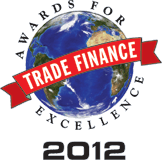
Settlement in Renminbi Creates Opportunities
for US and Chinese Trading Partners

|
By |
China's central bank continues to advance the internationalization of the renminbi (RMB), opening the door ever wider for US importers and their Chinese trading partners to benefit from cross-border trade settlement in the Chinese currency.
Efforts by the Chinese to make the RMB a global currency have accelerated since July 2009, when China launched a pilot program in five Chinese cities for companies to conduct cross-border trade settlement in RMB. Under the pilot program, only trade flows are allowed, although a group of 365 participants were approved as "Mainland Designated Enterprises" (MDEs) eligible for export business.
In 2010, China expanded the MDE list to include 67,359 companies in 20 provincial regions. Then, last August, the People's Bank of China extended the program to include the entire country.
Another major step in the internationalization of the RMB came last year when China's central bank began allowing cross-border capital account transactions — in addition to trade-related transactions — to be settled in renminbi.
The momentum continues in 2012. In the spring, China's central bank announced that all Chinese companies qualified for foreign trade activities can conduct cross-border export settlement in the renminbi, eliminating the need for MDE status.
Overcoming the Documentation Obstacle
One of the major concerns in the market about settling cross-border transactions in RMB is that the mandated documentation process is too onerous. China's central bank has addressed that concern by initiating a pilot program in which trade participants no longer have to submit certain documents, such as contracts and invoices, to the bank for verification before proceeding.
On June 13, 2012, a pilot scheme was officially announced in the city of Shanghai aiming for a simplified RMB cross-border payment process. Certain eligible clients that registered in Shanghai are now allowed to invoice and settle cross-border trades in renminbi without having to provide documentation for pre-trade verification.
Impact on Chinese Exporters
Chinese exporters welcome the prospect of being invoiced more in RMB and less in US dollars or other foreign currencies, as this eliminates their need to manage any foreign exchange risk.
Settling cross-border trade transactions in their home currency also reduces administrative work for Chinese exporters, exempting them from the Value-Added Tax (VAT) refund verification, which is required for settlement in foreign currencies.
How US Importers Can Benefit
For US importers, one of the primary potential benefits of settling trade transactions with Chinese trading partners in RMB relates to pricing. When accepting US dollars as payment in trade transactions, Chinese companies typically adjust their pricing to factor in the foreign exchange risk. By offering to pay in RMB, US importers can potentially negotiate lower pricing and/or more advantageous trade terms.
Invoicing in RMB helps increase the supplier base in China for US importers as well, because Chinese companies appreciate this practice so much. With more suppliers from which to choose, US importers gain greater bargaining power when negotiating price and terms.
US multinationals with operations in China also can benefit when they settle transactions in renminbi, because it allows them to centralize their foreign exchange management. Instead of managing their FX exposure in China, they can manage it centrally in a regional or global center in Hong Kong, Singapore or New York, for example.
Action Steps for US Importers
We strongly recommend that US corporations transacting business in China familiarize themselves with regulations related to settling transactions in RMB. They should look to their bank for regulatory updates and related market information.
US importers should also assess their trading partner relationships in China and look at how, in each case, settling cross-border transactions in RMB could benefit both their companies and their trading partners. They can then select a few trading partners in China, propose invoicing those trading partners in RMB, and seek to negotiate new contracts with new pricing and/or terms.
At the same time, a US importer can be opening an RMB bank account and adjusting its internal systems to accommodate a new currency code.
The next step is to initiate some pilot transactions that settle in RMB and to monitor the process to ensure a smooth implementation.
Support from Deutsche Bank
A Deutsche Bank Global Transaction Banking representative can help educate corporates on regulations related to settling RMB transactions and walk them through the process of getting started.
In addition, Deutsche Bank has a strong global clearing network. We offer RMB clearing through Hong Kong and plan to establish a second RMB clearing center this year in Shanghai.
We have deep knowledge in capital markets and foreign exchange trading, which enables us to help our clients hedge the risk related to transacting business in foreign currencies including RMB. Plus, our strong systems capability allows us to help US clients make the necessary systems adjustments with limited investment prior to making payments in the Chinese currency.
What's more, Deutsche Bank's FX4Cash integrated payments solution enables clients to execute FX conversion and payment in one simple step.
View other articles in this edition Next Generation Innovations in Trade FinanceMitigating Counterparty Risk in a Volatile Environment
Unlocking Potential: Trade and Cash Convergence
| Download a PDF |
| Comment on This Story |
| Suggest a Topic |
| Related Articles |
|
Conducting Business with China: RMB Developments FX4Cash Payments Platform Streamlines Cross-Border, Cross- Country Transactions |
| Current Edition |
| Previous Editions |
| Visit Our Web Site |
| Recent Awards |
|
Trade Finance magazine Awards for Excellence, June 2012 • Best Trade & Supply Chain Bank in North America  Euromoney Trade Finance Survey 2012 • No. 1 Trade Finance Provider - US • No. 1 Trade Finance Provider - Brazil |